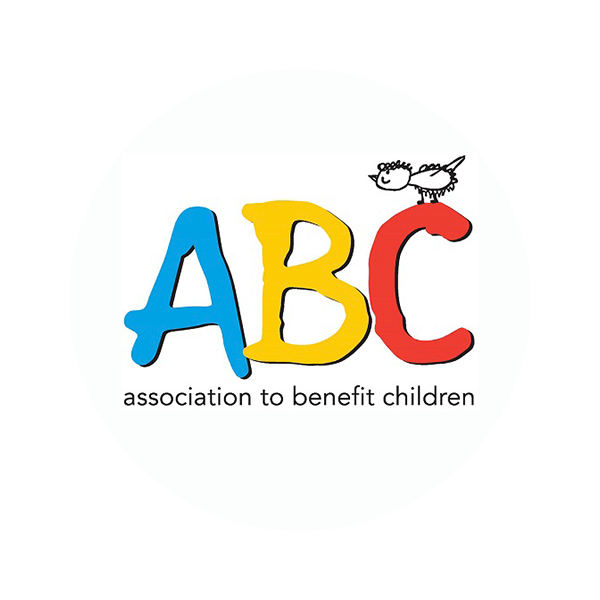ABC has a long history of speaking out on behalf of children in need and fighting for their rights, changing the landscape for children across the nation.
Inclusionary Education For Preschoolers with Disabilities
ABC's national advocacy began with Merricat's Castle School - the national inclusionary model for preschool education. Through a hard-fought victory in the courts, ABC helped establish the right to integrated classrooms for young children with disabilities, which subsequently became policy nationwide.
Anti-Hunger
During the 1980's when large numbers of hungry children appeared in the shadows, searching for leftovers in dumpsters outside supermarkets, ABC publicly exposed the growing hunger crisis among children while developing a model for a cost-effective emergency food program with the Church of the Holy Trinity and other local churches, synagogues, and schools. In 1982, ABC established a hot meal program called the Yorkville Soup Kitchen in PS 151 and promoted the replication of the program by utilizing existing facilities and personnel in schools. Later in 1996, ABC also established Baked in the Hood, a culinary arts program for homeless adults. Today, ABC continues to fight hunger by providing hot, nutritious meals to children and families, and through its East Harlem Health Justice Center.
Family Rights and Model Housing
In 1985, ABC filed a class action lawsuit to compel the state to provide preventive services such as housing and day care to vulnerable families without opening child-protective cases. Continuing this critical work, ABC’s Preventive Services program, All Children’s House, brings these essential services to desperate and seriously at-risk families.
In the mid-1980’s, as neighborhoods gentrified and vacancies in low-income housing disappeared, ABC also exposed the deplorable conditions homeless families faced living in abandoned buildings or dangerous and expensive “welfare hotels.” ABC set the standard for decent transitional housing by using the same funding the government had squandered to transform a dilapidated building in East Harlem into Rosie and Harry’s Place, a permanent housing for homeless families living with HIV/AIDS. This cost-effective housing program became a replicable model throughout the state and the country.
In 1987, ABC fought alongside the National Law Center on Homelessness & Poverty through a national class action lawsuit to ensure the enactment of the McKinney Vento Act. In recent years, ABC has renewed its efforts to preserve the integrity of McKinney Vento, which remains the only major federal legislation designed to prevent and end homelessness in the United States. Under this law, homeless children are guaranteed school enrollment and educational stability.
An End to "Boarding" Babies at Hospitals
In the late ‘80’s, cheap street cocaine and AIDS swept through urban neighborhoods, leaving those living in poverty especially hard-hit. Women were routinely incarcerated and lost their parental rights, and an unprecedented number of their infants were warehoused in hospital wards for months on end, often tethered to their cribs. To end this cruel and expensive practice, ABC brought two class-action lawsuits in 1987 and 1991 against the city and state. This landmark litigation, coupled with ABC’s efforts to educate the public, helped rescue “boarder babies” across the nation. ABC subsequently created Cody Gifford House as a replicable model program, which demonstrated that medically-fragile infants could live safely and happily at home.
HEALTH CARE Advocacy
In the mid-1990’s, when crucial progress had been made in the prevention and treatment of HIV/AIDS, ABC focused its efforts on the critical need for early identification, counseling, and treatment. ABC’s class action lawsuits in 1994 secured counseling, testing, and treatment for children in foster care; another lawsuit in 1995 ensured routine HIV testing for all newborns in New York and the provision of treatment and counseling for HIV positive infants and their family members. Hospitals were also mandated to counsel pregnant women on the benefits of HIV testing.
After a decade of offering crucial mental health services to New York City's most vulnerable children and families, ABC officially launched Fast Break in 1994. Fast Break is New York City’s first mobile mental health crisis and disaster team designed to provide children living in poverty access to treatment. In the aftermath of September 11, 2001, ABC created A Child’s Space, a disaster relief clinic that provided families with counseling and support.
In 2002, ABC won an important victory in federal court that guaranteed early and free periodic health screenings, a primary care provider, diagnosis and corrective treatment, and educational counseling for all homeless children suffering from asthma.
Learn more about ABC’s history of changing the life trajectories of children and families by watching the videos below.
“Boarder Babies”
Gretchen Buchenholz discusses ABC’s early efforts to advocate for medically-fragile children warehoused in hospitals.
the First Supportive Housing Program
Gretchen Buchenholz explains the horrible conditions of the Martinique welfare hotel and the creation of ABC's first supportive housing program.






